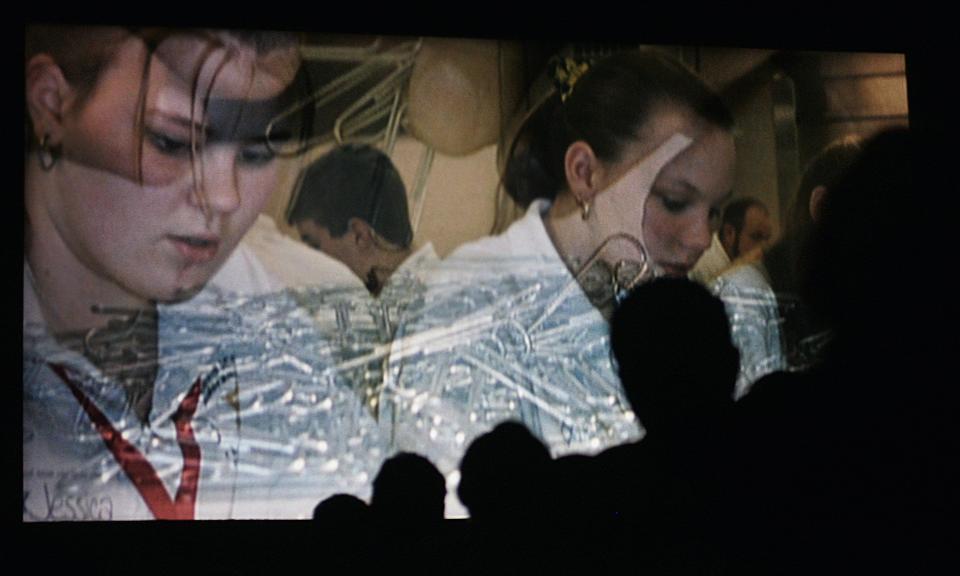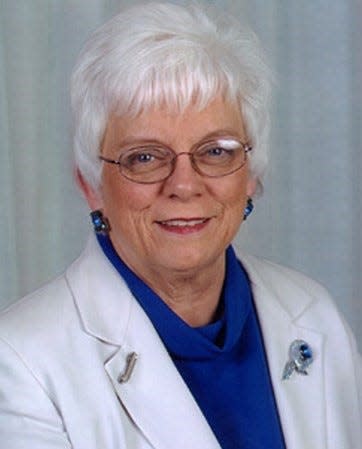How removal of a book from Tennessee schools can unite a community against hate | Opinion
- Oops!Something went wrong.Please try again later.
As someone who has spent my entire career in education, I know that sometimes students learn the best outside their classrooms. The pandemic and continued political polarization have sadly done so much to tear at the fabric of trust that binds communities like ours together. Our young people have suffered the most as a result.
That’s why I understand some of the fears and concerns that led to the McMinn County school board’s decision to remove the Pulitzer Prize-winning book "Maus" from their curriculum. It is also why I hope that the school board reverses its decision.
Marion County, where I live and where I worked, is not very different than McMinn County. Both are rural Tennessee counties, both less than an hour away from Chattanooga. For many of the families who live here, day to day life is about faith and community. While we pride ourselves on the hospitality that we show to all people, neither McMinn nor Marion has a lot of diversity in terms of race or religion.
Hear more Tennessee Voices: Get the weekly opinion newsletter for insightful and thought provoking columns.
Why I wanted kids to engage as global citizens
More than twenty years ago, when I was the principal of Marion County’s Whitwell Middle School, I wanted to help our kids understand that while we’re not all white, Anglo-Saxon, and Protestant, we are all God’s children.
I wanted our kids to engage as global citizens and to understand that we must respect those differences. I wanted them to learn what happens when we don’t fully recognize the humanity of people from different ethnic backgrounds and cultures. Vice Principal David Smith identified a curriculum to teach those lessons, and in 1998, we began an afterschool study where we introduced the Holocaust to our students.
Our eighth grade social studies teacher, Sandra Roberts, started teaching them how hatred and intolerance could lead to persecution, violence, and eventually even genocide. However, in a city with a population of around 1,700, the death of millions was unfathomable to our kids.
One student asked if the class could collect items to see what millions would even look like. After some research, our students learned that Norwegians would wear paper clips during World War II as a sign of protest of Nazi occupation. Thus, the Paper Clips Project was born.
Sign up for Latino Tennessee Voices newsletter: Read compelling stories for and with the Latino community in Tennessee.
How the Paper Clips Project grew
To date, Whitwell students have collected more than 30 million paper clips from across the world. They’ve used the project to engage in history, talking to survivors of the Holocaust and learning about the events that led to it.

Today, under Principal Josh Holtcamp, Whitwell Middle School students continue to learn about the Holocaust from Taylor McDaniel Kilgore, who once sat on the other side of the classroom as a student and a participant in the Paper Clips Project.
Outside, the school is home to the Children’s Holocaust Memorial, which displays 11 million paper clips – each symbolizing a life taken in the Holocaust. Beyond Whitwell, One Clip at a Time continues to amplify the lessons of the Paper Clips project in classrooms all over North America.
For Whitwell students, the process of gathering millions of paper clips helped them grasp the sheer scale of that atrocity, but our students wanted and needed to learn more.
Over time, we’ve introduced a number of age-appropriate books about the Holocaust – including Art Spiegelman’s graphic novel Maus. I believe families are the first teachers, and it is our duty as educators to continue involving students’ families in their academic journeys. So, when we introduced new books into our curriculum, we invited parents to read them along with us. Together, we have been having a community-wide discussion that has now gone on for decades.
Sign up for Black Tennessee Voices newsletter: Read compelling columns by Black writers from across Tennessee.
We must not turn away from difficult parts of our history
To the degree that the words and images in "Maus" are so profoundly troubling for some, we know that it is because they open a window in one of the most appalling and horrific events in human history – a chapter that I am sure many would prefer to forget.
Yet this is exactly why we must not turn away. These uncomfortable, necessary conversations are now unfolding in McMinn County, where local clergy members, teachers, and most importantly students, are working to ensure that they have access to stories and materials that will help them understand the past.

We owe the young victims of the Holocaust and atrocities everywhere, our commitment to this understanding.
The school board of McMinn County will meet again this Thursday. As their community’s leaders decide how to move forward, we hope that they unite in that commitment as well.
Linda Hooper volunteers as Coordinator of the Children’s Holocaust Memorial in Whitwell, Tennessee. She is the former mayor of Whitwell and the former principal of the Whitwell Middle School.
Inspired by the Paper Clips Project, One Clip at a Time is a nonprofit based in Chattanooga, TN, that promotes student activism and supports service learning in classrooms across North America. For more information visit oneclipatatime.org
This article originally appeared on Nashville Tennessean: Maus removal: How banning a book can unite a community against hate

